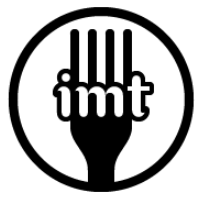by Tara Deliberto, PhD
The journey of creating IMT started years ago when Dina Hirsch, PhD, was my supervisor as I trained in a hospital program for adolescents with eating disorders. I was fairly new to the treatment of eating disorders at the time and was shocked to find that there were simply no evidence-based treatment material written for use with adolescents with eating disorders in groups. The modus operandi back then was to use repurposed material for adults with other disorders such as anxiety or borderline personality disorder. I remember saying: "we have to do better than this!" Dina agreed. Out of necessity, we started creating group material together rooted in either previously published evidence-based treatment manuals or one-off interventions described in research papers. We also started writing similar material for use with parents/carers in our family meetings as well as with patients in our individual therapy sessions. Over time, the collection of interventions amassed into three separate books of handouts/worksheets for use in groups, family sessions, and individual therapy.
Soon others in the field started to express interest in using our materials. Some clinicians even started translating them into other languages for use with their patients. This type of feedback quickly signaled to us that we had been creating a practical and scalable treatment for eating disorders in adolescents that others seemed to perceive as practical and easy-to-administer in both hospital as well as outpatient settings. It also became apparent that IMT could be used as a tool to train clinicians in geographical regions where eating disorder specialists were sorely lacking. Understanding the potential for IMT to help treat eating disorders we set out on a mission to see IMT published and disseminated, hoping to contribute to the efforts made by those in our field to improve care. Eating disorders are deadly illnesses. They are also different than many other disorders in that they are self-eclipsing (i.e. people may not be aware that they have an eating disorder, nor may they state they want to recover.) Being specialists in how to treat these illnesses, we want to do anything we can to spread knowledge to clinicians, families, and patients about how to best treat them.
If you’re interested in pre-ordering the IMT clinician’s manual published by New Harbinger, visit Amazon here!
And always feel free to message us with any questions!
All the best,
Tara

